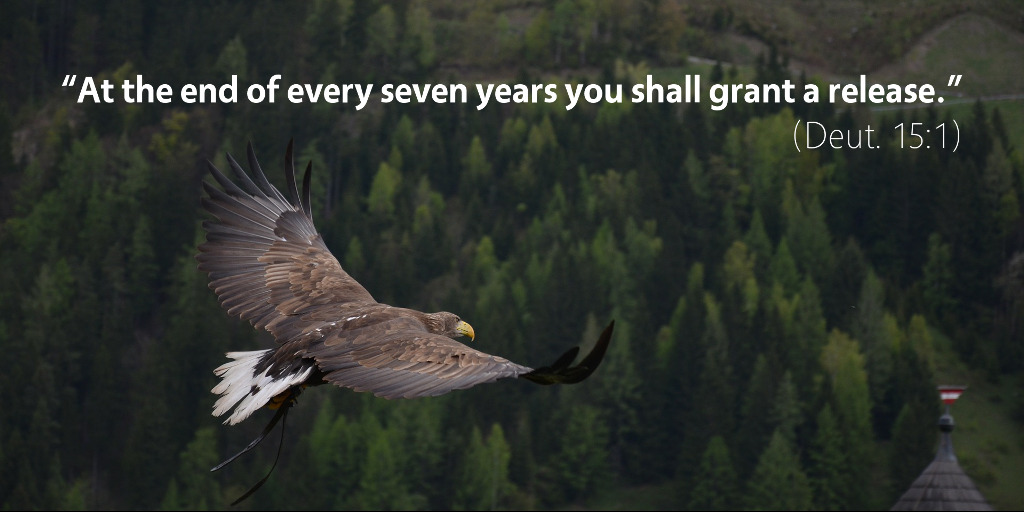Bible Readings for June 10th
Deuteronomy 15 | Psalm 102 | Isaiah 42 | Revelation 12
Toward the end of yesterday’s meditation on Deuteronomy 14, we talked about how the tithes of Israel were meant to take care of the needy as well as the Levites, who did not have their own inheritance but depended on the tithes of other Israelites for their income. In today’s reading, we get a little clearer picture of the kind of generosity God is teaching his people to live out.
In Deuteronomy 15, Moses establishes a Year of Release in the life of Israel. Every seventh year, Israelites would forgive their fellow Israelites for any outstanding debts they owed. This provision did not apply to foreigners in their midst (Deut. 15:3), but fellow Israelites would have their entire debt cancelled, no matter how large the sum.
To be clear, this doesn’t mean that all loans had a seven-year window for repayment. The seventh year was a fixed calendar for the entire nation, so some loans might be forgiven after a very short time. Moses gave a clear warning to Israel, though, that to ignore the needs of their needy brothers only because the Year of Release was coming was sin (Deut. 15:9). The Year of Release was for the benefit of the poor, not for the profit of the rich.
On the other hand, any slave who wished to stay with his master when the Year of Release came around could choose to do so, receiving a mark on his ear to become his master’s slave for life (Deut. 15:15–17). Although this seems odd to us, slavery in the Bible was very different from the slavery that was practiced in America. In the ancient world, most slaves became slaves because they had gone to work for their masters to pay off debts, not because they were kidnapped and stolen from their homes by slave traders.
But if your slave did wish to go during the Year of Release, you were not to release him empty-handed. Instead, you were commanded to “furnish him liberally out of your flock, out of your threshing floor, and out of your winepress. As the LORD your God has blessed you, you shall give to him” (Deut. 15:14).
In this way, Moses acknowledges that while “there will never cease to be poor in the land” (Deut. 15:11), at the same time “there will be no poor among you” (Deut. 15:4)—that is, there will be no permanent class of poor people. The desire was always to see those people restored to flourishing.
Seen together, these regulations form a powerful picture of the gospel. The one who possesses all wealth and who holds authority to command the storm to be still nevertheless forgave our debts and even submitted to become a slave for us (Phil. 2:7), pierced through so that we might go free.
Behold the generosity of our God.
Podcast: Play in new window | Download (4.7MB) | Embed
Subscribe: Apple Podcasts | RSS | More

Scripture quotations are from The Holy Bible, English Standard Version copyright © 2001 by Crossway Bibles, a division of Good News Publishers. Used by permission. All rights reserved.


